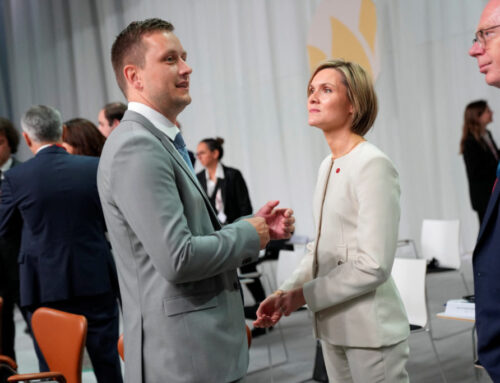UK scientists to launch outdoor geoengineering experiments
April 22, 2025
UK scientists are to launch outdoor geoengineering experiments as part of a £50m government-funded programme.
The experiments will be small-scale and rigorously assessed, according to Advanced Research and Invention Agency (Aria), the UK government agency backing the plan, and will provide “critical” data needed to assess the potential of the technology. The programme, along with another £11m project, will make the UK one of the biggest funders of geoengineering research in the world.
Geoengineering is controversial and some previous planned outdoor experiments have been cancelled after strong opposition. Most geoengineering proposals aim to block sunlight reaching the Earth’s surface, for example by launching clouds of reflective particles into the atmosphere or using seawater sprays to make clouds brighter.
If successful, this could temporarily reduce surface temperatures and the harm the climate crisis is causing, giving more time for the deep cuts in global carbon emissions needed. Given the failure of the world to stop emissions rising to date, and the recent run of record hot years, backers of solar geoengineering say researching the issue is vital in case an emergency brake is needed.
However, solar radiation management (SRM) could have serious unintended consequences, such as shifting rains vital to food production. Some scientists warn that starting to develop geoengineering could reduce the drive to tackle the root cause of the climate emergency – the burning of fossil fuels.
Prof Mark Symes, who is leading the Aria programme, said the looming threat of climate tipping points was a strong reason to research solar geoengineering. The triggering of tipping points by rising temperatures, such as the collapse of vital ocean currents or giant ice sheets, would have catastrophic impacts.
“The uncomfortable truth is that our current warming trajectory makes a number of such tipping points distinctly possible over the next century,” he said. “This has driven increased interest in approaches that might actively cool the world in a short timeframe in order to avoid those tipping points.
“Having spoken to hundreds of researchers, we reached the conclusion that a critical missing part of our understanding was real world, physical data. These would show us whether any of these potential approaches would actually work and what their effects might be. Modelling and indoor studies are essential as prerequisites but can only tell us so much.”
He said no toxic substances would be released, an environmental impact assessment would be published before outdoor experiments and that local communities would be consulted. Details of the projects funded by Aria are expected in a few weeks.
Aria’s programme was recently called a “dangerous distraction” from cutting emissions by senior scientists, who called SRM “barking mad” and akin to treating cancer with aspirin.
A £10m programme of geoengineering research was announced by the UK’s National Environment Research Council (Nerc) on 3 April to investigate the impact of solar geoengineering interventions. It will not involve new outdoor experiments but rely on computer modelling, existing data and natural analogues, such as volcanic eruptions and changes in shipping emissions.
“Our role is to provide the best possible, robust evidence, but without advocating for [geoengineering] one way or the other,” said Kate Hamer, a director at Nerc.
Global funding for geoengineering to date is relatively small compared with climate science overall, being in the low hundreds of millions of dollars, according to Dr Pete Irvine from the University of Chicago. The US was the leading funder but President Donald Trump’s attack on climate research is expected to reduce this, potentially making the UK the leading funder. “It’s worth stressing that geoengineering is not a substitute for emission cuts,” Irvine said.
Prof Jim Haywood, at the University of Exeter and a Nerc grant recipient, said scaling up an SRM project could be feasible over about a decade. “At the moment, all of these ideas need to remain on the table, because otherwise climate change in the coming decades could be extremely damaging. Recent global temperatures have been a real wake-up call.”
There is no international agreement between countries to govern any major geoengineering scheme and experts have called for a moratorium on deployment.
“We know that SRM, or the prospect of SRM, would affect international relations – it’s a serious research question,” said Dr Sebastian Eastham, at Imperial College London and also a Nerc grant recipient. “So part of our project is going to be to convene people from different world regions to understand what might be the consequences.”
Eastham said he thought the UK geoengineering research would rule out some proposed technologies: “I expect we will gather a small amount of observational evidence and it will close the door for some. Then we’ll know we focus our efforts on the areas that are going to be most helpful and least harmful.”
Search
RECENT PRESS RELEASES
Related Post




